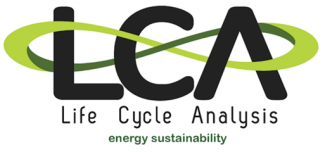As new technologies and processes are created to achieve the administration’s goal of a net-zero greenhouse gas emission energy economy by 2050, a skilled NETL team takes precise steps to understand the innovations’ environmental impacts through rigorous life cycle analysis (LCA) processes. The results help people make better decisions to improve and protect the environment.
The work is part of NETL’s commitment to support the nation’s development of safe and sustainable chemicals and fuels through its Center for Sustainable Fuels and Chemicals, a technology development center established to assist the chemical and fuels industry towards a sustainable future.
The chemicals industry is a keystone of the U.S. economy, converting raw materials) into more than 70,000 different products that we use daily. Chemicals are the building blocks of many products that meet fundamental needs for food, shelter and health. Chemical products are vital to computing, telecommunications, biotechnology and other advanced technologies.
The NETL LCA team uses the principles of life cycle assessment, to conduct its studies. Life cycle assessment studies the environmental impacts of a product from raw material extraction through production, use and final disposal.
NETL uses LCA as a tool and framework to evaluate energy technology and policy options and has applied the analysis to energy systems that produce electricity and liquid fuels. The final products of the NETL LCAs are detailed reports and dynamic software tools.
NETL’s world-class research and analysis team has produced more than 200 publications and 500 process data files dedicated to explaining LCA results; establishing national baselines; assessing emerging and existing technologies; comparing technology and scenario tradeoffs; and planning for future energy innovations.
NETL’s Matt Jamieson explained that “LCA includes the environmental burdens of converting fuel to useful energy, infrastructure construction, extraction and transportation of fuel and transport of the final energy product to the end user.”
The NETL LCA team has produced reports on a wide range of emerging energy topics that are available for review including:
- Biomass (materials from forests, cultivated crops, or agricultural residue).
- Coal (a fossil fuel that is extracted by underground or surface mining techniques).
- Carbon dioxide conversion (use of captured carbon dioxide in flue gas from fossil power plants, industrial sources or direct air capture to produce various products).
- Fuels (gasoline, diesel and jet fuel refined from crude oil, gasified coal and biomass and ethanol from corn and cellulosic feedstocks).
- Geothermal (energy accessed by drilling wells a mile or deeper below the surface of the Earth).
- Hydropower (use of flowing water to spin a turbine connected to a generator that produces electricity); natural gas (gas production techniques and gas pipelines for transportation).
- Natural gas (a cleaner burning and more flexible alternative to other fossil fuels).
- Liquefied natural gas (natural gas that has been cooled to a liquid state, for shipping and storage).
- Nuclear (splitting of atoms to produce smaller atoms and energy known a fission).
- Petroleum (crude oil extraction and transport, refining and consumption).
- Solar (energy from the sun harnessed with solar collectors).
- Wind (conversion of wind energy to electrical energy).
The team has developed LCA tools encompassing many of these topics, such as the Grid Mix Explorer (powered by the electricitylci) and the CO2U LCA Toolkit with addenda for additional topics such as the 45Q utilization tax credit and the Utilization Procurement Grants program. The team also works to ensure interoperability with other LCA efforts across the federal government through their partnership with the Federal LCA Commons.
Another key product of the Lab’s LCA operation is the Unit Process Library. A unit process is the smallest building block in a life cycle model. Each unit process contains qualified input and output data like resource requirements and potential emissions.
“The NETL Unit Process Library is available to increase the public’s understanding of the tools used to inform energy policy and guide energy research,” NETL’s Michelle Krynock said. “Each NETL unit process contains a detailed DS and DF file. The DS file is an Excel file that contains all the parameters, inputs and outputs for a given system as well as background data, calculations and quality scores.”
Meanwhile, the DF file is a PDF document that contains major assumptions and data sources that are the basis for each unit process.
According to the U.S. General Services Administration’s Sustainable Facilities Tool website, there are many benefits of LCA to American businesses because it provides:
- A comprehensive view of environmental impacts.
- Quantified environmental effects such as overall energy consumption or air emissions.
- Comparisons of alternatives.
- Identification of inefficiencies or significant changes across life cycle phases.
- A reduction of overall environmental impact and costs.
That information is critical to the public and private sectors as they work toward a decarbonized future.
NETL drives innovation and delivers technological solutions for an environmentally sustainable and prosperous energy future. By using its world-class talent and research facilities, NETL is ensuring affordable, abundant and reliable energy that drives a robust economy and national security, while developing technologies to manage carbon across the full life cycle, enabling environmental sustainability for all Americans.




